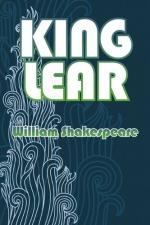|
This section contains 9,537 words (approx. 32 pages at 300 words per page) |

|
SOURCE: Kirsch, Arthur. “The Emotional Landscape of King Lear.” Shakespeare Quarterly 39, no. 2 (summer 1988): 154-70.
In the following essay, Kirsch focuses on religious, specifically Christian, elements in the characters of King Lear. Kirsch concentrates on the figures of Lear and Cordelia, and examines their relation to motifs of love, suffering, and death.
The tragedy of King Lear raises large religious, as well as political and social, questions, and there is a disposition in recent scholarship to treat the play as if it were an argument that gives unorthodox, if not revolutionary, answers to them. Prominent critics have contended that Lear is locked in combat with Elizabethan conceptions of Providence and order,1 and one influential Marxist critic has maintained that the play constitutes both a specific criticism of Elizabethan ideology and a denial of what he calls “essentialist humanism,” the belief that, with respect to tragedy, assumes “a human essence...
|
This section contains 9,537 words (approx. 32 pages at 300 words per page) |

|


